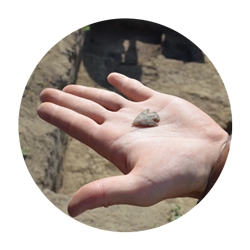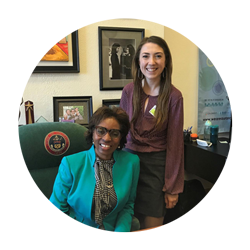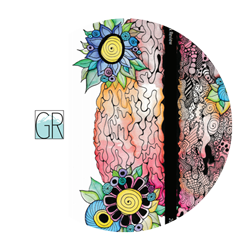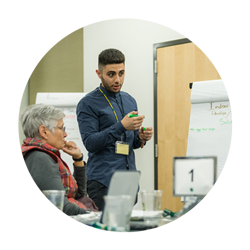Why study the liberal arts?
The liberal arts teach us how to understand and improve the human experience.
Through our disciplines in the humanities, social sciences, and visual and performing arts, we explore where we came from, how we form groups, how power and privilege play a role, how we communicate, what questions to ask of life, and how to interpret and create a piece of art.
A liberal arts degree is both timeless and important because
- It provides new perspectives with which to see and understand the world.
- It teaches a flexibility and adaptability that prepares you to navigate changes in work and in life.
- It encourages civic engagement and helps to build the knowledge and resources critical for well-functioning democratic institutions.
What makes liberal arts different at CSU?
Colorado State University is a Carnegie I Research Institution and a public land-grant university. This means that we are among the high research universities in the nation, and you have access to world-renowned scholars across campus, high-quality spaces in which to learn and live, robust academic and personal resources and services, and a long history of community engagement.
If you're interested in a focus on the cultural, social, environmental, and historical context in which we live,
Explore a liberal arts education at CSU.
What does liberal arts mean?

Liberal comes from the Latin liberalis
meaning free (rather than imprisoned or subjugated)
Arts comes from the Latin root ars, art
meaning art, skill
Together, the liberal arts provide the skills that free citizens need to contribute meaningfully to society.
Questions?
Email cla_recruitment@mail.colostate.edu or contact our College of Liberal Arts ambassador team.
ACADEMICS
Undergraduate and Graduate Programs
We offer
- 19 undergraduate majors with 50+ concentrations
- 38 minors
- 24 graduate programs
so you’ll find a program that matches your interests. We also make it possible to enhance your studies through active participation in the University Honors Program, Education Abroad, undergraduate research, and internships for credit.
Teaching Excellence
As a public land-grant institution, we excel in teaching, research, and service. Our faculty are dedicated to excellence in the classroom, and here’s how we know they are making a significant impact:
- 69 College teaching award recipients
- 50 Best Teacher Award winners
- 8 University Distinguished Professors
- 5 University Distinguished Teaching Scholars
We train our graduate teaching assistants with this same focus in mind, so you’ll get a high caliber instructor for any course you take.
Research and Creative Artistry
You’ll have the opportunity to collaborate with faculty conducting compelling research and creative endeavors. Here’s how we support exploration:
- 18 research centers
- 400+ active research projects
- 2 Programs of Research and Scholarly Excellence
You’ll be supported in pursuing and presenting on your own research interests through Celebrate Undergraduate Research and Creativity Showcase (CURC), the Multicultural Undergraduate Research Art and Leadership Symposium (MURALS), and the Graduate Student Showcase.
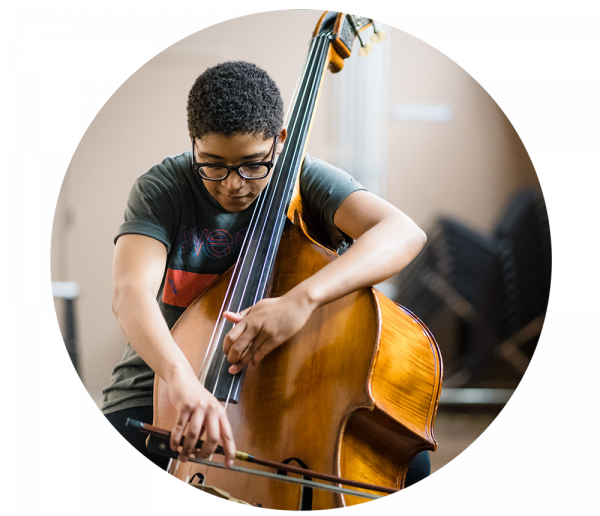
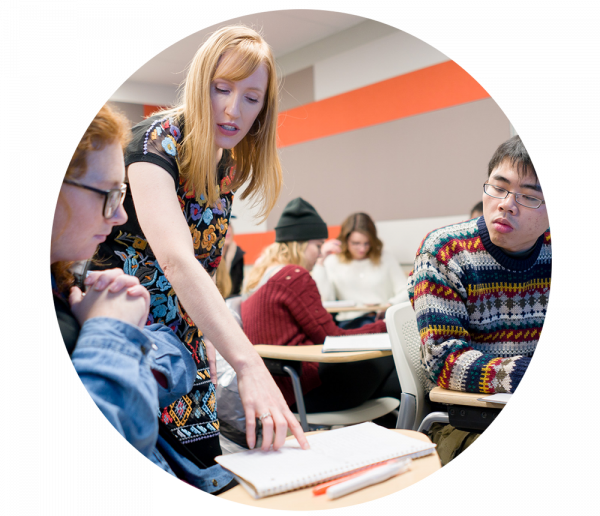

Experiental Learning
Students can take advantage of multiple learning opportunities outside of the classroom. Some of these include:
Interdisciplinary Opportunities
For an interdisciplinary approach to your studies, consider:
- Studying international studies or interdisciplinary liberal arts
- Spending a semester in Todos Santos, Mexico
- Enrolling in our interdisciplinary, team-taught course that changes topic each semester (e.g. Art & English, Poetry & Pottery, History & English)
- Adding a second major or a minor to your program of study, which enhances your academic experience and provides you another lens from which to understand the world
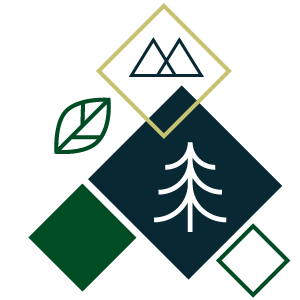
Focus on the Environment
Many of our faculty specialize in understanding the relationship between the environment and the human experience.
Academic programs include environmental:
- history, ethics, affairs, politics and policy, sociology, communication
Additional courses are offered in:
- Environmental humanities
- Art and the environment
- Environmental justice
- Food and natural resources communication
- Technical and science communication
Spaces and Places
We’re also proud of our learning, research, performance, and exhibition spaces for students. Our spaces are stocked with top-industry technology tailored to each program.
Just a sample of these spaces include:
- The University Center of the Arts which has 6 performance venues and specialized spaces for dance, theatre, and music rehearsals
- The Gregory Allicar Museum of Art, an accredited museum by the American Alliance of Museums
- The Visual Art Building is home to a state-of-the-art woodshop and digital fabrication lab that includes computer-numerically-controlled (CNC) machine tools, 3D printers, 3D scanners, laser cutters, and a high force (vinyl) cutter, as well as 5 gallery spaces.
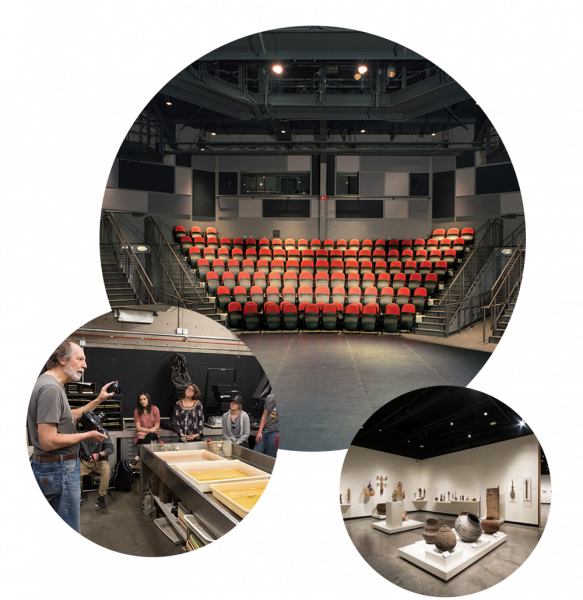
COMMUNITY
Hear from current CSU students about the community in the College of Liberal Arts.

By pursuing a major in the College of Liberal Arts at Colorado State University, you’ll be part of a welcoming community of scholars with a mission on access, inclusive excellence, and community impact. We focus on providing an education to anyone who is willing to commit the time and effort to pursue a degree.
We embrace the diversity of our students, faculty, and staff, and continually work to make the College of Liberal Arts a welcoming and supportive place for discovery, creativity, and learning.
- 26% of undergraduates are first-generation
- 25% of undergraduates identify as racially or ethnically diverse
- 15+ centers for internships and research opportunities
- 40+ student clubs and organizations
- 4,400+ students
- 660 faculty and staff
We live CSU's guiding Principles of Community: inclusion, integrity, respect, service, and social justice.
Academic Support Center
Our Academic Success Coordinators practice holistic advising for students, assisting students with:
- Graduation planning and course selection
- Finding internships and experiential learning opportunities
- Learning study skills and finding academic resources
- Navigating the university system
- Outreach and crisis assistance
College of Liberal Arts Ambassadors
The CLA Ambassadors are a team of passionate liberal arts students who are here to support prospective students, families, and guests by:
- Leading personalized tours of the learning spaces in the college
- Answering questions about life as a student in the CSU College of Liberal Arts
- Supporting university visit day experiences, like Choose CSU
VALUE
We care about not only what students become, but who they become, and how we can help them in their academic and professional journeys.
Instead of narrowing your opportunities with a niche skillset, a degree in the liberal arts will equip you with the skills and tools to explore, create, and lead in a variety of industries, creating multiple possibilities for whatever career you pursue.
Essential Skills
Students who study the liberal arts learn how to:
- Think critically
- Communicate clearly
- Apply creativity to solve complex problems
- Appreciate and empathize with others
- Analyze information and data
- Integrate different world views
- Engage in civil discourse
The skills learned in a liberal arts education are transferable across careers and they help make you a better citizen of the world.
Hear from CSU students and faculty about the skills you develop in the College of Liberal Arts.

Scholarships & Cost of Attendance
CSU is dedicated to making our education accessible and the cost of attendance is competitively priced compared to other four-year institutions in Colorado.
In the College of Liberal Arts, we offer both merit- and need-based scholarships to help students reach their goals. For many of our departments, scholarships are reserved for returning students to help support them as they progress further in their education. For others, like the School of Music, Theatre, and Dance, scholarships are primarily awarded in the first year. In 2018-2019, we awarded 361 scholarships totaling more than $430,000 in scholarship support.
For incoming, first-year students with high academic achievement and demonstrated leadership, we offer the Blake Leadership Scholars Program, which enhances the student’s education through scholarship funding, internship opportunities, education abroad, and undergraduate research opportunities.
What can you do with a liberal arts degree?
College of Liberal Arts students have access to a dedicated Career Education Manager who will help guide and mentor students to find internship and career opportunities relevant to their interests. 83% of our undergrads have plans for their first destination after CSU — whether that's employment, graduate school, or military service — and our alumni go on to do some pretty amazing things.
Hear from CSU alumni about their career journeys after graduating with a liberal arts degree.
- Attorney
- Brand Manager
- Instructional Designer
- Diplomat
- Senior Policy Specialist
- Web Developer
- Teacher
- Government Affairs Director
- Case Supervisor
- Brigade Commander, Colonel
- Physician
- Chief Strategy Officer
- Non-profit Founder
- Archaeological Field Technician
- GIS Analyst
- Government Affairs Director
- Development Director
- Financial Analyst
- Marketing Coordinator
- Legal Assistant
- Community Relations Coordinator
- Technical Designer
- Digital Support Specialist
- Client Services Professional
- Clinical Pharmacy Specialist
*Job titles were collected from graduates from 1976-2011 in a 2017 alumni survey.
LOCATION
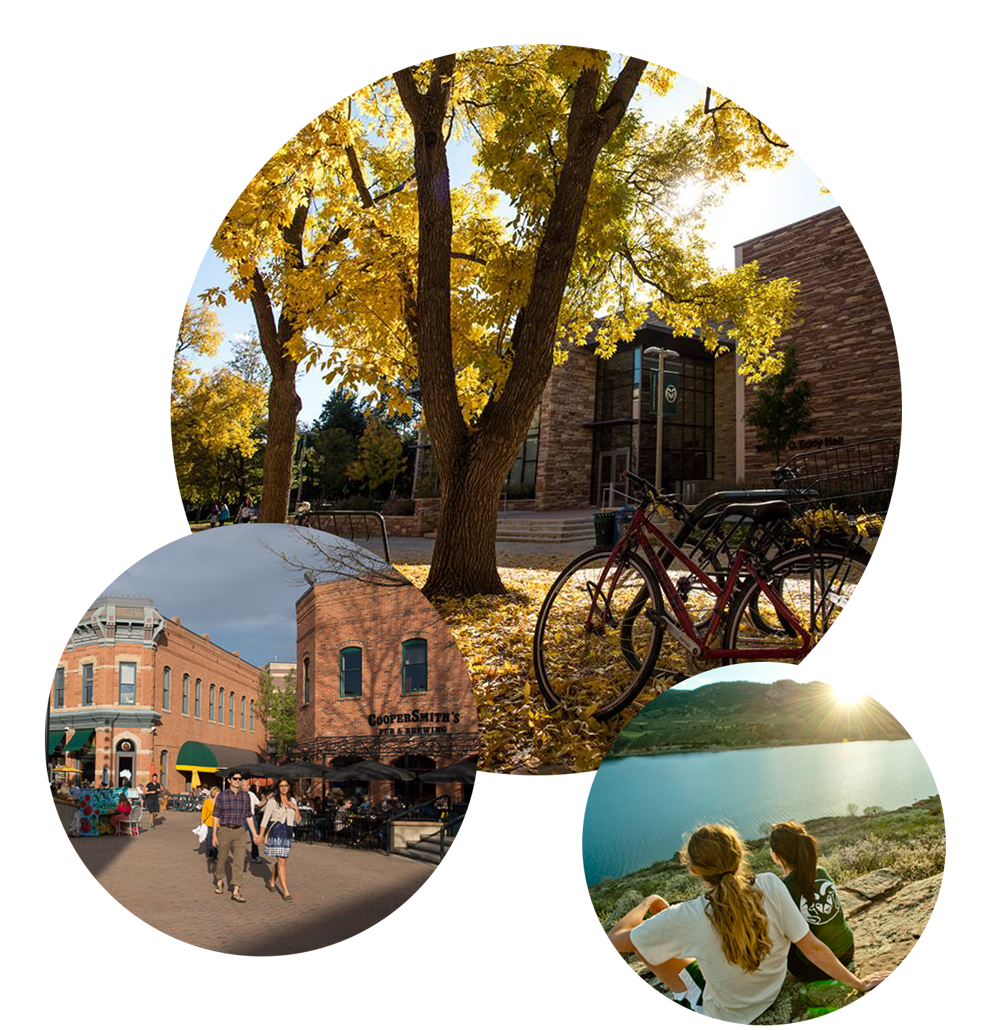
Fort Collins, CO is more than just a mid-sized city with easy access to the tech-hub city of Denver or the majestic Rocky Mountains. By living in Fort Collins, you’ll get to brag about the 300+ days of sunshine a year, hundreds of miles of bike routes and trails to explore the outdoors, and the vibrant cultural scene.
One of the best parts of our location is the collaborative relationship the city has with CSU. Students can find opportunities around the city to apply their studies – whether that means performing with local theatre companies, hosting an art show in one of the 60 surrounding gallery spaces, or interning with surrounding businesses, non-profits, or the government.
We also emphasize engaged scholarship in our College, which means we conduct research and outreach to directly benefit our local community. Students can train to be facilitators with the Center for Public Deliberation or literacy advocates with the Community Literacy Center.
Take the next step
Are you a prospective undergraduate student?
Are you a prospective graduate student?

